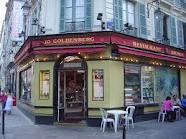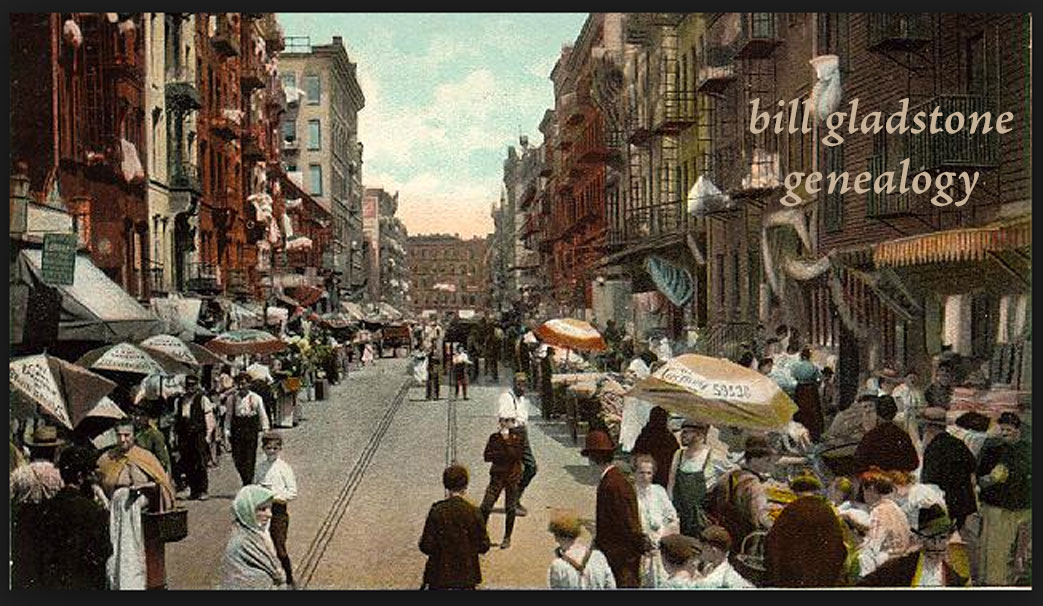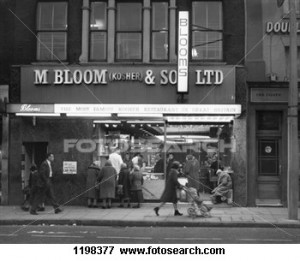 Goldenberg’s, one of the leading kosher restaurants in Paris, serves Russian, Yiddish, Turkish, Romanian and Bulgarian delicacies in an informal haimishe atmosphere at 69, avenue de Wagram, about 20 minutes by foot from the Arc de Triomphe.
Goldenberg’s, one of the leading kosher restaurants in Paris, serves Russian, Yiddish, Turkish, Romanian and Bulgarian delicacies in an informal haimishe atmosphere at 69, avenue de Wagram, about 20 minutes by foot from the Arc de Triomphe.
The restaurant is one of a chain whose other outlets are in Sofia, Bucharest, Constantinople and Odessa, where the owners originated. The menu offers a variety of Russian, Yiddish, Turkish, Romanian, Bulgarian and traditional Jewish delicacies that are, perhaps, reminiscent of the Goldenberg family’s long journey. Appropriately, this establishment’s slogan is “De La Mer Noire a L’avenue de Wagram” — “From the Black Sea to Wagram Avenue.”
Upon entering through the cluttered doorway, visitors may be delighted (or distracted) to find that the front of the establishment is taken up by a mini-supermarket at which kosher meats, salads and baked goods are available. But the prices! One’s nostalgia for a good old-fashioned North American twister bagel may be overcome by the astonishing ransom of $2.38 — requested for one, not half a dozen!
Long and narrow, the restaurant is decorated with atmospheric portraits of religious Jews poring over prayerbooks and musical Jews playing the violin. What sounds like a heart-rending Romanian folk song pours soulfully from a hidden speaker. A waiter, dressed in white cottons, seats you at a small table upon which he places one dish of horseradish and dill pickles, and another with rye bread and matzah.
So what’ll it be to start? A bowl of clear chicken soup with kreplach ($13)? Russian borscht ($14)? And for the main course? A plate of “Jewish sauerkraut” for $26.60? Russian beef stew “comme chez ma grand’mere” for $22.40? Or does your conservative palette require a simple bagel with cream cheese and lox, costing $26.60?
After much deliberation, this reporter selects the luncheon special, a “New York style” corned-beef sandwich platter with helpings of cole slaw and potato salad. It features a triple-decker sandwich whose bottom slice of bread comes soaked in juices from the salads. The rye bread is textureless and thin as cardboard, but the meat is lean, sliced thinly by machine, and piled to a generous thickness. A caveat: the pot of mustard on the table is not the innocuous variety common in North America. Price: $23.
For desert, there’s Romanian strudel and other selections for about $11.20 each. For the hungry, a full lunch or dinner for two — excluding the French and Israeli wines and the various schnapps used to wash down the meal — may easily exceed $100.
This restaurant is not to be confused with the equally famous establishment by the same name in Le Marais neighbourhood of Paris, run by a brother of the owner of the Wagram restaurant. Open daily, except Yom Kippur. Reservations, 4227-3479. ♦
Note: Goldenberg’s shut down in 2008.
Several days after consuming one of the best kosher corned beef sandwich to be found in all of France — at Goldenberg’s, 69, avenue de Wagram, Paris — this reporter found himself on Whitechapel High Street in the east end of London, below a neon sign advertising Bloom’s kosher delicatessen.
The journalistic temptation was too great. A moment later, he was seated at a table, deliberating over Heimishe Barley Soup, Roast Chicken Leg, Worsht & Eggs, and “Gedempte Meatballs.”
After outgrowing a series of premises in Brick Lane and Wentworth Street, the last of which was destroyed in the Blitz, Bloom’s opened its famous Whitechapel location more than 40 years ago. This establishment’s legendary success is celebrated in a rousing essay on the back of its menu, which speaks of skilled chefs conducting kosher food experiments, a new and tastier method of pickling salt beef which “so stimulated the appetites of the people that they came from miles around,” evergrowing demand, and continuous commercial expansion from the 1920s onward.
In lieu of a bronze plaque, a large sign on the wall announces that Bloom’s is the birthplace of “salt-beef” — what North Americans know as corned beef. As the menu chronicles with an historian’s flair, the late kosher connoisseur Morris Bloom developed the original Veal Vienna back in the 1920s, then scored again with salt beef. It was only a matter of time until, as the menu declares, “Bloom’s salt beef sandwich became a household word.”
So, given all this, what was this CJN reporter going to order — lockshen kugel? The restaurant, whose rather mundane decor belies its importance to Jewish gastronomic history, features a take-out counter at the front where salt-beef sandwiches are prepared. Yours truly went there and placed an order for the house specialty to go.
The meat is cooked tender and lean and sliced thickly by hand, across the grain, so it seems ready to fall apart. The bread is suitably crusty. Overall, the sandwich melts exquisitely between the tongue and the palate. Equal in taste to its counterpart at Goldenberg’s in Paris, a sandwich at Bloom’s stands about half as high, but goes for only about one-third the price: $8.
Bloom’s Kosher Restaurant, 90 Whitechapel High Street, E.1, London, 247-6001. Reservations not required. A newer location is situated at 130 Golders Green Rd., N.W.11, London, 455-1338. A variety of canned kosher foods prepared by Bloom’s under daily rabbinical supervision is available at some 700 outlets across Great Britain. ♦
Note: The Bloom’s restaurant in Whitechapel closed in 1996; a Golders Green branch was renovated in 2007; an Edgware outlet launched in 2007 lasted only a year. For current information about delicatessens, see the website http://www.savethedeli.com
© 1994






